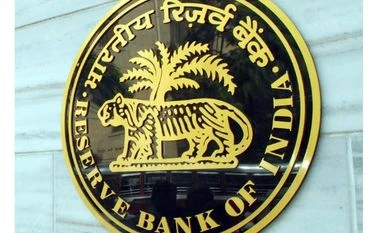Economic Affairs Secretary Shaktikanta Das said RBI will operate within that limit as per requirement, not as if the entire quantum of MSS would be utilised overnight.
"Whatever liabilities come in this year we should be able to absorb it in Budget provisions for interest payment, which is there already in the Budget," he told reporters.
Also Read
The announcement regarding the auction of CMBs was made within minutes of increase in MSS ceiling. CMBs will have the generic character of Treasury Bills, it added.
After the withdrawal of the legal tender character of the Rs 500/1,000 denomination notes with effect from November 9, there has been a surge in deposits with the banks, the Reserve Bank said in a notification.
Consequently, there has been a significant increase of liquidity in the banking system that is expected to continue for some time, it said.
"In order to facilitate liquidity management operations by the RBI in the current scenario, the government has, on the recommendation of the RBI, decided to revise the ceiling for issue of securities under the MSS to Rs 6,000 billion," it added.
MSS bonds are issued with the objective of providing the central bank with a stock of securities with which it can intervene in the market for managing liquidity. These securities are not issued to meet government's expenditure.
As part of liquidity management exercise, RBI last week asked lenders to temporarily maintain an incremental cash reserve ratio (CRR) of 100%.
CRR is the portion of the deposits banks are required to park with the Reserve Bank. The actual current rate of CRR is 4%. Das said the interest burden of MSS will depend on the tenure of the bonds whether it is 14-days or 28-days or 364-day to-bill.
"RBI has its own opinion about what is the kind of liquidity that is there. RBI has said that CRR will be reviewed. Therefore, there is an overall liquidity on which RBI will take a view," he added.
Das said the instruments which RBI will use depend on its judgement based on the liquidity situation prevailing and the maturity could range.
"It could be CMBs, t-bills of various maturities. So, depending on the maturity, the interest payment liabilities will arise in this year or spill over to next year. Whatever liabilities come in this year we should be able to absorb it in Budget provisions for interest payment, which is there already in the Budget," Dad said.
RBI Governor Urjit Patel said recently that the central bank has announced incremental CRR (Cash Reserve Ratio) of 100% "because of the large increase in deposits of banks on account of the return of Rs 1,000 and Rs 500 notes" and the decision will be reviewed immediately once the government issues adequate quantum of MSS bonds.
"While the RBI has a significant stock of government securities available, we felt that if the increase in deposits continues we may fall short, hence the decision. Once the government issues adequate quantum of MSS bonds, which they have promised to, we will immediately review the incremental CRR," he had said.
)